"SLC | S21W5 : Mini Research for Students"
Introduction |
|---|
It is my pleasure to participate in this challenge as I have been looking for this opportunity to take part in it. I appreciate the organiser for this topic.
As we all know, research is the process of gathering, analysing and sorting data to gain new knowledge or insight. Research processes involve collation, arrangement and analysing data. In the process of collation of information, it is pertinent to note that researchers must go out to make enquiries, organise, take time to analyse and interpret the data before coming to a certain conclusion.
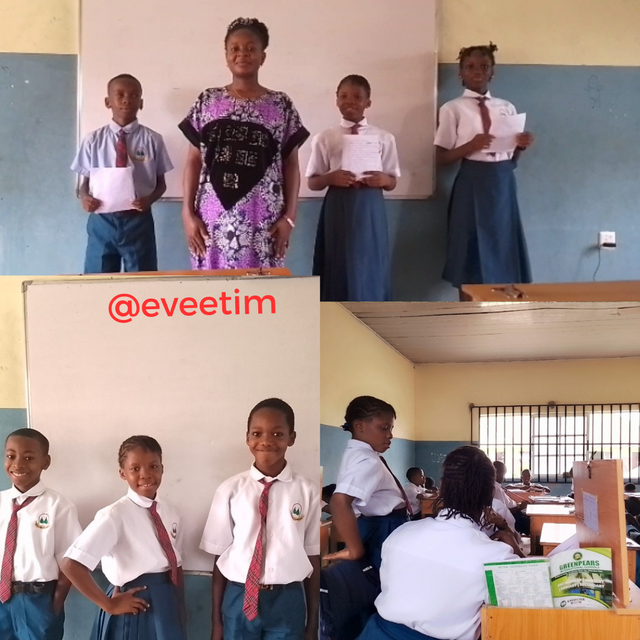
Made with Canva
1. Determine the topic of the mini research for your students and why the research needs to be done by the students? 1 point |
|---|
Mini Research Topic: Reasons Why Students Fail in Examination
However, for the purpose of this challenge, I used my students ages 10–11 years old as I am a teacher. Since my school is about to start its First Terminal Examination on Monday 2nd December, I thought researching on the reasons why students fail their examination would be a perfect topic in order to help them understand some of the problems students face and ways to solve them. One of the intentions of the topic is that the students will learn something spectacular and improve their studies at the end of the research.
In order to achieve success in the research, after I picked the topic, I divided the students into three groups of 4, 5 and 5 students, because they're 14 in the class. I gave each group a specific topic for them to research on.
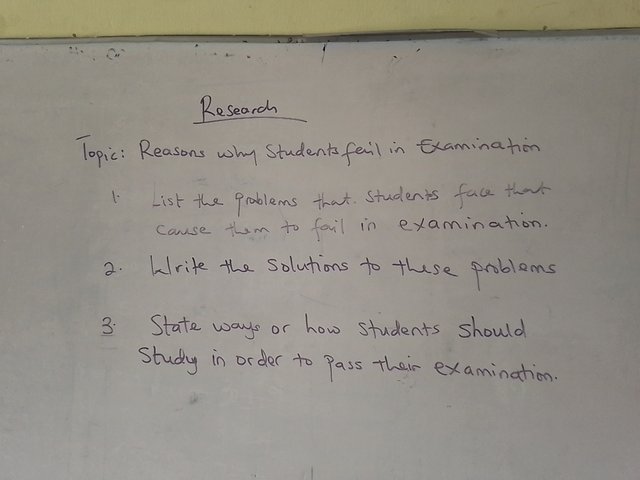
2. Formulate a problem or two, then develop some relevant interview questions to answer the problem? 1 point |
|---|
In the last promotion's examination by the school, some students were made to repeat a class due to poor grades, while others were promoted on trial. Because of that, we did this research in order to discover where the students are not doing well and how this has affected their grades. In view of that, three questions were developed based on the topic.
Problems students face that cause their failures in their examination.
Solutions to the problems
Ways students should study to achieve success in their examination
3. Assign your students to conduct research using the prepared interview questions and observe every activity the students do, sharing photos and videos during the activity? 3 points Photo 1 point |
|---|
Each group was asked to use the interview questions to interview senior students, teachers and people around their neighbourhood. After interviewing people, I instructed the students to split into their groups and submit their research to their group leaders, who would combine all the data for easier presentation.
Since there were three questions I developed, I made group 1 to collate all the information regarding question number 1, which was;
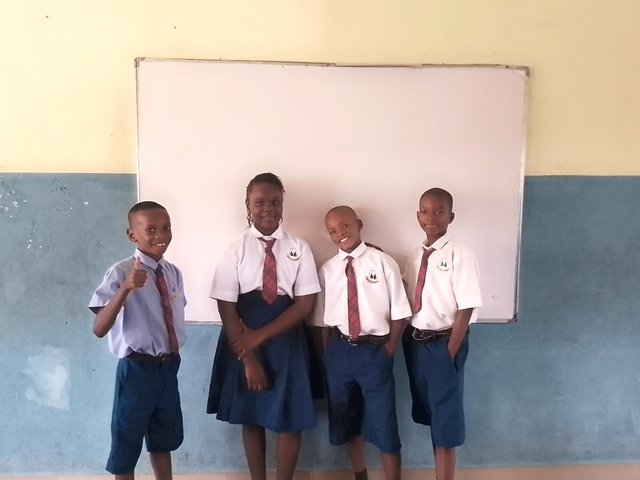
Group 1
The problems that make students fail in their examination. And so, these are their findings
Distraction from mobile phones which students use to play games, watch movies and also to view social media etc.
Distraction from peer influence
The use of reading/studying time for attending social and religious activities.
Laziness that maybe caused by lack of motivation to study.
Overconfidence (high self-esteem and low self-esteem)
Family feuds between parents or siblings may cause students to lose focus on their studies.
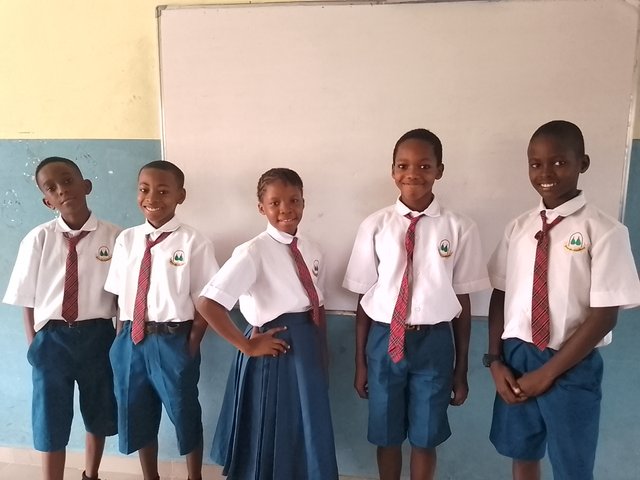
Group 2
Question 2 for group 2: Solutions to the problems faced by students that cause them to fail
The students came up with the following solutions to the above problems.
Discussion of any problem encountered with the school counsellor
Form a study group with like minds
Drafting a study guide e.g. reading timetable
Asking questions, seeking clarification in areas not well understood by the teachers
Setting questions for oneself and attempting them accordingly
Studying past questions on the subject to understand the pattern of questions that may be set.
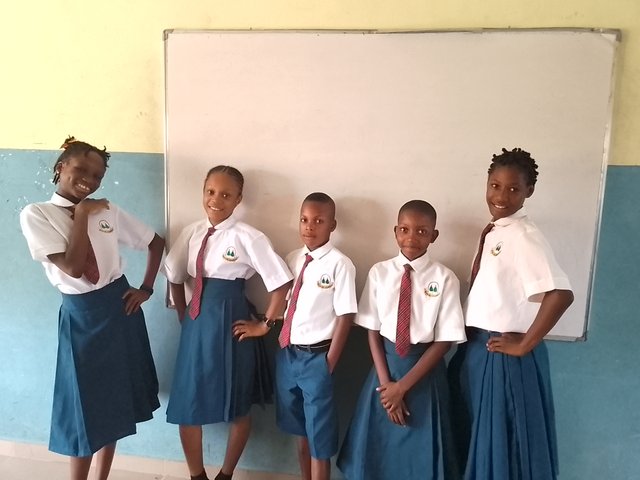
Group 3
Question 3 for group 3: Ways students can study in order to achieve success in their examination.
Studying in a quiet environment
Avoid distractions from friends, family members and gadgets.
Use of effective revision techniques such as reading and jotting down the points.
Taking enough rest when due and having sufficient sleep after studying can relax the mind before an examination.
4. Explain and elaborate on any interesting findings that occurred during the research and what are the conclusions of the research results? 3 points |
|---|
After the collation, organising and presentation of each of the group, I took time to interview the students about interesting facts they had learnt in the course of the research.
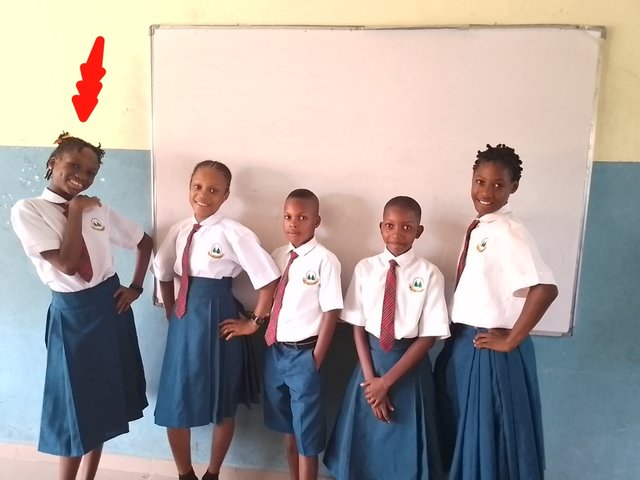
Courage says "I never knew that overconfidence could cause failure in an examination, because sometimes, I don't read. I've always succeeded in my basic school, even when I don't read, I've always thought that I'd pass my high school examinations even with the little I've read."
That's the problem of some students, because they have always succeeded in other classes or subjects. They feel that they'll always be successful, but no, to be successful in every examination requires intensive and continuous learning.
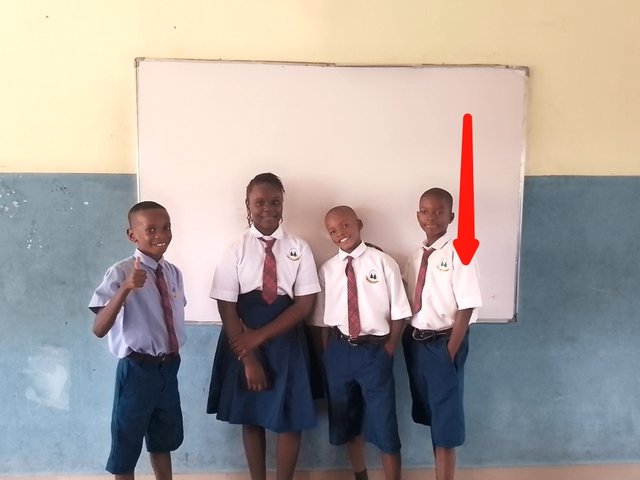
Maurice said, "I don't have a reading timetable at home, I read anytime I feel like and have enough time to play and watch movies."
As a teacher, I took time to explain the need for a study guide, and giving adequate time for studying.
The students in Junior secondary school 1 don't know that high school is different from their basic school and that more effort should be geared towards achieving success. I also told the students that their first term success would determine if they'll be promoted to the next class because, one of the school policies is to repeat students who don't have up with the school cut off average marks.
5. According to your observations, what are the weaknesses of the students during this research, and what are your steps in developing their analytical skills in the future? 2 points |
|---|
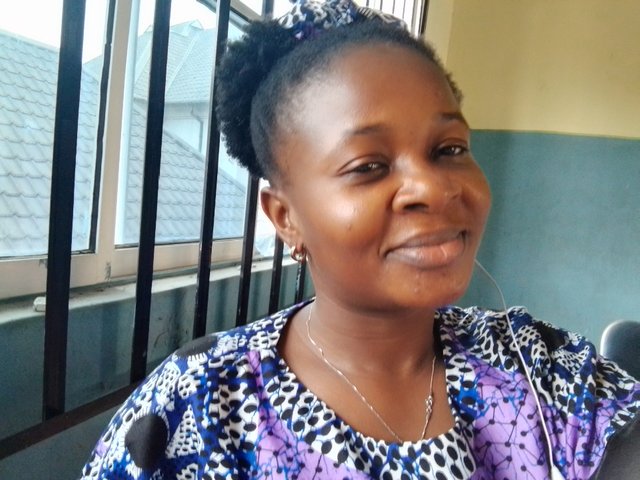
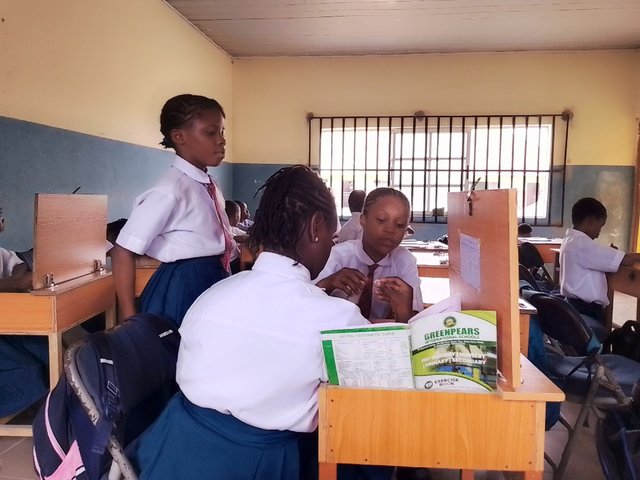
I watched the students keenly without getting involved in the collation and organisation of the data. I only passed instructions. I noticed that there was no deep explanation of the points they made. They only highlighted the points. On my own, I took time to explain the salient points they raised which gave them a deeper understanding.
I also noticed that the students didn't sort the data they got from interviewing people, everything was transferred to their list of presentation. So, before the presentation, I collated their materials and ticked the useful points.
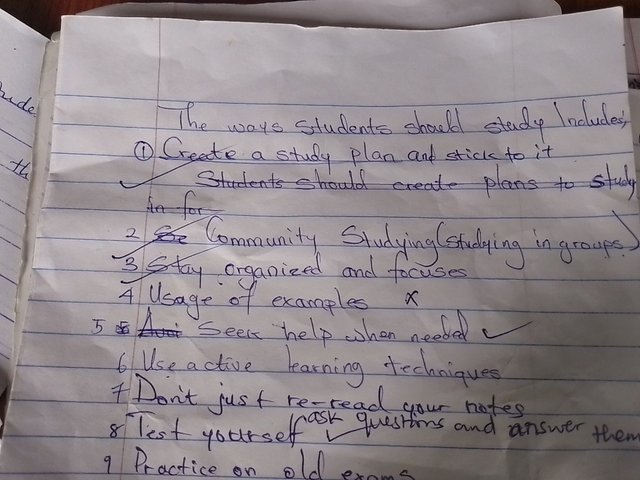
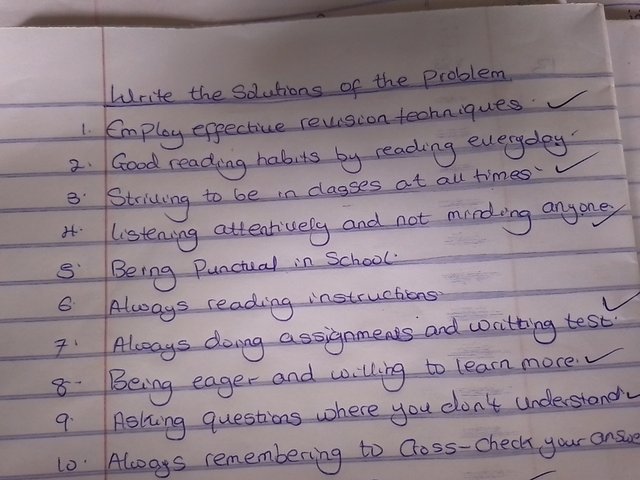
Steps Towards Analytical Thinking
Effective communication: The students lacked effective communication because of time constraints, as everything is being fixed on time. I encouraged the students to communicate effectively with group members whenever such research is being carried out.
Logical thinking and paying attention to details: The students lacked the ability to organise data because of lack of attention to details. I advise them that the next time they do a research, they should not make use of just any information they have got, they should collectively pay attention to details by sorting out the useful points. While also applying judgemental reasoning in the process of sorting out data.
In the end, it was all fun, knowledge gained and adjustment made.
Your teacher, @eveetim
I'm inviting
@chilaw
@okere-blessing
@realitytrend
https://x.com/EvelynEtim61489/status/1862397216339452025
Upvoted! Thank you for supporting witness @jswit.